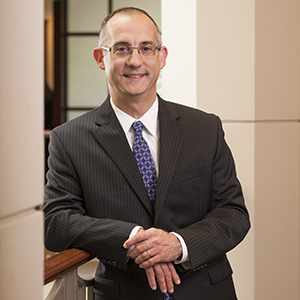New Course Examines "Freddie Gray's Baltimore"
In response to the recent disturbances in Baltimore following the death of Freddie Gray, the University of Maryland Francis King Carey School of Law is offering a new course titled, “Freddie Gray’s Baltimore: Past, Present, and Moving Forward.”
The eight-week course, which begins in September, will be taught by Maryland Carey Law faculty members as well as other academics, practicing professionals, and elected officials. It will be open to students from the law school and the University of Maryland School of Social Work.
The course will examine the unrest in Baltimore as well as its causes and possible solutions by focusing on social, economic, and other issues, including policing practices, criminal justice, access to housing, health care, education, joblessness, and community development.

Donald B. Tobin, JD
“We see this course as an opportunity for our students to grapple with important issues in their backyard,” said Dean Donald B. Tobin, JD. “We want not only to educate our students, but to inspire them to act on what they’ve learned and work with our neighbors in West Baltimore to strengthen our community and city.”
Throughout the course, students will be apprised of volunteer opportunities to work on the issues addressed in each session.
The new course arose from conversations among law school faculty about how to help students understand the many issues raised by Freddie Gray’s death. The school, along with the School of Social Work, had launched a discussion series after the 2014 demonstrations in Ferguson, Mo.
In addition to the course and the discussion series, Maryland Carey Law already is deeply engaged in the community through its Clinical Law Program, classroom activities, research in action, externships, and volunteer service. Maryland Carey Law’s clinical program is one of the oldest, largest, and finest such programs in the country. It is nationally ranked by U.S. News & World Report and, with approximately 20 legal clinics, provides more than 100,000 hours of free legal services each year to individuals, families, and organizations in Maryland.
The law school’s new and existing initiatives are part of a larger effort underway at the University of Maryland, Baltimore, to engage and revitalize the West Baltimore community in which it resides.



